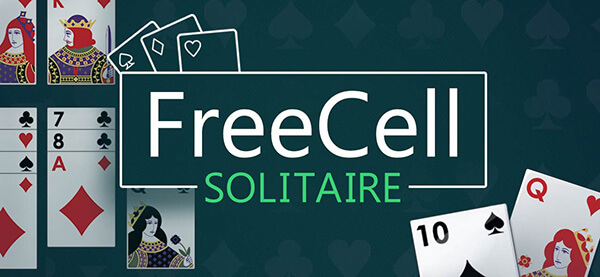Free Cell Solitaire: A Relaxing Way to Boost Logical Thinking

In the modern digital landscape, we often assume that activities fall into distinct categories: either they are intensely stimulating, demanding razor-sharp focus (like competitive strategy games), or they are passively relaxing, requiring little mental effort (like casual browsing or repetitive clickers). Yet, tucked away on virtually every personal computer for the last three decades is a masterpiece of design that defies this dichotomy: free cell solitaire.
This game offers a unique cognitive experience: it is a demanding puzzle that requires relentless logical calculation, yet its very structure induces a profound state of calm. Free cell solitaire is, quite unexpectedly, the perfect mechanism for boosting logical thinking precisely because it is so relaxing. It provides a sanctuary where the mind can engage with complex logic without the pressure of time, competition, or chance. For the gamer, the card enthusiast, or anyone seeking a productive mental retreat, free cell solitaire is the ultimate tool for sharpening the mind in peace.
The Paradox of Calm Logic: Why Free Cell Solitaire Is Different
To understand how free cell solitaire achieves this blend of relaxation and rigorous logic, we must look at its core design distinction from its famous ancestor, Klondike Solitaire.
In standard Solitaire, the introduction of a hidden deck and random draws injects an element of luck that can lead to frustration and emotional swings. In contrast, the architect of the modern game, Paul Alfille, designed free cell solitaire to be a game of perfect information.
1. The Elimination of Chance
All 52 cards are dealt face up into the eight cascades at the start of the game. This transparent setup eliminates the single biggest source of stress in card games: arbitrary bad luck. The certainty that a deal is almost always solvable (with the standard Microsoft deal set having only one documented impossible hand, Deal #11,982) is profoundly calming. The player knows the problem can be solved, removing the anxiety that the time spent might be futile.
2. The Focus on Process, Not Outcome
Because the cards are known, the mental energy of the player shifts entirely away from hoping for the right card and toward planning the perfect sequence. The challenge is purely internal and intellectual. This defined, predictable environment allows the mind to enter a state of controlled immersion a calm, focused pursuit of logical solutions that is deeply satisfying. The brain is fully engaged in complex calculation, yet the low-stakes, self-contained nature of the game keeps the emotional system regulated.
| Game Aspect | Randomness/Stress | Logic/Calm |
| Information | Zero (Perfect Information) | High (All Cards Visible) |
| Pacing | Self-Determined (No Timer) | High (Calculated Sequence Required) |
| Failure | Attributed to Strategy, Not Luck | Low Emotional Impact |
The Cognitive Boost: Training Sequential Logical Thinking
The logic required by free cell solitaire is not a simple, single-step deduction. It is a form of sequential logical thinking that demands planning and foresight, training the player to think several moves into the future.
The Discipline of the Freecells
The four free cells are the engine of this logic training. They are the game’s ultimate resource constraint, teaching the player the crucial lesson of resource management. A novice fills the four free cells quickly and jams the board. The logical player views the free cells as a temporary, disciplined tool.
The thought process becomes an immediate, two-part logical sequence:
Logical Justification (The Why): Why am I putting this card here? It must be to unblock a lower-ranked card that is immediately necessary for the foundation.
Logical Exit Strategy (The When): How will this card leave the free cell in the next one or two moves?
This necessity of planning both the entry and the exit for the temporary resource trains the mind to calculate the cost of commitment. Every logical decision must be validated against its long-term consequence, a foundational skill for high-level problem solving in any field.
Planning Depth: The Two-Phase Solution
The logical structure of free cell solitaire is typically solved in two distinct planning phases:
Phase 1: Tableau Analysis and Deconstruction: The initial logical task is a top-down analysis of the board to identify the “bottlenecks” the low-ranked foundation cards (Aces and Twos) trapped under high-ranked cards (Kings, Queens, Jacks). The goal is to logically prioritize moves that clear the most important columns first, often using the free cells aggressively, but briefly, to gain access to the foundational card.
Phase 2: Sequence Reconstruction: Once the low cards are freed and the board is more open, the logical challenge shifts to reconstruction. The player must efficiently rebuild long, alternating sequences onto the foundation while logically minimizing the shuffling of cards back and forth between the cascades and the free cells. This phase requires meticulous attention to sequence and order.
The ability to calmly switch between these two demanding logical modes analysis and construction is a powerful cognitive exercise unique to free cell solitaire.
The Relaxation Factor: Flow State and Mental Sanctuaries
How does such a strategically demanding game promote relaxation? The answer lies in its ability to induce and sustain a state of flow and act as a mental sanctuary from external noise.
Inducing the Flow State
Psychologist Mihaly Csikszentmihalyi’s concept of Flow is a mental state achieved when a person is fully immersed and focused on an activity. Free cell solitaire is a perfect flow machine:
Clear, Attainable Goals: The objective is always unambiguous: move the cards Ace to King.
High Challenge, High Skill: The difficulty is high enough to demand complete mental engagement, preventing the mind from wandering, but the certainty of solvability prevents the anxiety that would break the flow.
Focused Serenity: The mind is so intensely focused on the logic of the cards that it is effectively shielded from external anxieties, worries, and distractions. The problem of the cards becomes the only problem, allowing the rest of the mind to rest in a state of productive calm.
This is not passive relaxation; it is active serenity, where the clarity of logic leads directly to mental peace.
The Comfort of the Closed System
In an increasingly complex and unpredictable world, the digital sanctuary provided by free cell solitaire is a source of unique comfort. The game is a closed, predictable system. The rules are constant, the cards are all visible, and the outcome is purely rational. This provides a valuable psychological respite: a few minutes where the player can exercise absolute control over a finite, manageable problem. This temporary sense of intellectual mastery is deeply relaxing and restorative, acting as a mental “reset button.”
Practical Takeaways: Applying Free Cell Logic to Daily Life
The logical disciplines mastered while playing free cell solitaire offer direct, practical takeaways for improving logical thinking and emotional stability in real-world scenarios.
1. The Power of Contingency Planning
The free cells are the metaphor for your real-world contingency budget, whether that is time, financial reserves, or emotional capacity. Free cell logic dictates that you must conserve these resources and use them only when necessary to achieve a high-value unblocking move. This translates to:
Do not commit time or money to a task unless you have a logical, two-step plan to recover that resource or achieve an objective that is exponentially more valuable than the resource cost.
2. Prioritizing the Bottleneck
In work or project management, the most frustrating bottlenecks are often the “buried Aces” the small, foundational tasks that are blocked by larger, high-visibility problems. Free cell logic teaches the logical priority: ignore the distracting, easy moves and channel all focus into identifying and removing the primary constraint first. The biggest logical gains are achieved by unblocking the lowest card, not by shuffling the high cards.
3. The Value of Reversibility
The careful player of free cell solitaire constantly checks the reversibility of a complex move sequence. Will this logical path lead to a dead end, or is there always a safe step back? This translates to a crucial decision-making skill:
Before executing a major, resource-intensive plan, calmly assess if the move is logically safe, or if it will leave the situation irreparably worse if the predicted outcome fails to materialize.
This disciplined, low-regret logical thinking is a direct output of hours spent maneuvering the cards in free cell solitaire.
Read Also: The Evolution of Augmented Reality: From Sci-Fi Dreams to Everyday Tech
Conclusion: The Quiet Triumph of Logic
Free cell solitaire is a classic because it perfectly synthesizes intellectual challenge with mental tranquility. It is the ultimate expression of the idea that deep concentration can be a source of relaxation.
By eliminating the stress of chance, demanding the rigorous application of sequential logic, and reinforcing the principles of prudent resource management, the game provides a daily, accessible workout for the core functions of logical thinking. The player learns to prioritize, plan deeply, and maintain calm composure under constraint.
For anyone looking to sharpen their mind and find a quiet, productive refuge from the noise of the digital world, free cell solitaire remains the unrivaled choice. It proves that the most powerful mental boost often comes not from high-speed action, but from the deliberate, peaceful application of pure logic.

